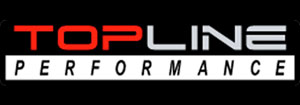This is the type of information that’s truly valuable onsite, and we should be interrogating it.
It’s taken the automotive industry years to get to the use of six-axis robots, but that was an evolution from very simple automation.This process is about baby steps, not huge leaps to the end state.. Johnston says we need to “simplify the process, understand, get the foundations right.”.

This has to come before we can start to apply other things..In the past year, COVID-19 has shown us just how much is possible.Marks feels that a behavioral shift is the main element needed to utilise our existing technology to more of its fullest potential.

It’s a long game, she says.This is about product-led thinking and strategic initiatives focused on long-term business health.. “You need an ecosystem of products, ours and other people's, to make this possible, but you first need leadership to give you permission to learn a direction, a strategy, the reasons you're doing this, and that, rarely, if ever, lives in one project.

We have to stop this nonsense that we're going to somehow change the world with one project.”.
The people in leadership positions, whose jobs aren’t vulnerable, they’re the ones who need to move this forward.Certainly, for automation, there is more confidence and immediate view about the tangible benefits that it could bring.. ‘Automating out’ routine work can have a significant impact on cost where there is the scale to support the investment.
Routine laboratory work takes scientists away from research thinking and potentially is a turn-off to those considering a career in laboratories.However, this is not a simple path.
It requires a change in the skill sets required in laboratories: scientists who develop skills in equipment engineering and coding or hardware and software engineers who develop skills in science.The current education system does not produce cross-fertilised disciplines (although skills like coding are becoming more endemic in the cohorts entering the workforce today).. Perhaps a more pressing problem is the fact that the new workforce of the 2020s is not keen to travel into an office or laboratory to work, preferring working remotely.. For research work and smaller more specialised laboratories, the automation story is different.
